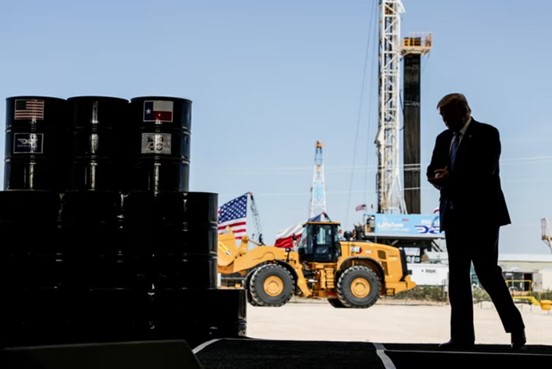
Climate Advocates Criticize Harris for Supporting Fracking in Debate Against Trump
Kamala Harris, known for her progressive stance on climate issues, made a surprising shift during a debate with Donald Trump, expressing strong support for fracking and expanded U.S. gas production. This stance raised concerns among environmentalists as the climate crisis was once again sidelined during a high-profile presidential debate.
In the televised event in Philadelphia, Harris countered Trump's claim that she would end fracking immediately if elected. She pointed to her role in increasing U.S. oil and gas production as vice president, emphasizing the importance of domestic energy. "I will not ban fracking," Harris stated, highlighting the role she played in passing the Inflation Reduction Act, which included new fracking leases. She argued that diversifying energy sources is key to reducing dependence on foreign oil.
Harris also touted record levels of U.S. gas and oil production, arguing that reducing reliance on foreign oil is essential. Despite her pragmatic approach, which may appeal to voters in swing states, scientists have stressed that fossil fuel consumption, including through fracking, must be significantly reduced to mitigate the worst effects of climate change.
The U.S. and other nations have committed to limiting global temperature rise to 1.5°C above pre-industrial levels, a target at risk as the planet continues to experience unprecedented heat. Environmental groups, many of which have supported Harris, were disappointed by her pro-fracking stance. Some likened her rhetoric to the "all of the above" energy approach seen during Barack Obama's presidency, which has since faced increased scrutiny.
Allie Rosenbluth, a campaign manager at Oil Change US, criticized both candidates for promoting fossil fuel production, calling it a dangerous position that would lead to catastrophic climate impacts. She expressed hope that Harris could still demonstrate stronger leadership on climate issues. "We need a president who will prioritize clean energy, end fossil fuel subsidies, and protect vulnerable communities," Rosenbluth said.
Harris's stance on fracking appears to be a calculated move to win over voters in key states like Pennsylvania, a hub for the gas industry. In 2016, Hillary Clinton faced backlash after suggesting that coal miners would lose their jobs, a controversy Harris seems keen to avoid. However, despite the political calculations, the debate largely ignored the pressing issue of climate change.
Although the topic was briefly mentioned near the end of the debate, the candidates spent more time discussing unrelated issues. Harris criticized Trump for calling the climate crisis a "hoax" and highlighted the economic and job growth spurred by the Inflation Reduction Act.
Trump, in contrast, delivered a disjointed response to the climate question, veering off-topic to attack Biden over alleged foreign payments. He also reiterated his plans to rescind climate legislation and ramp up oil and gas drilling if re-elected.
For many climate advocates, the contrast between the candidates remains clear. "At a time when extreme weather is affecting millions of Americans, Kamala Harris stands as the only candidate willing to address the climate crisis," said Lori Lodes, executive director of Climate Power. Meanwhile, Trump continues to align himself with the interests of the fossil fuel industry.